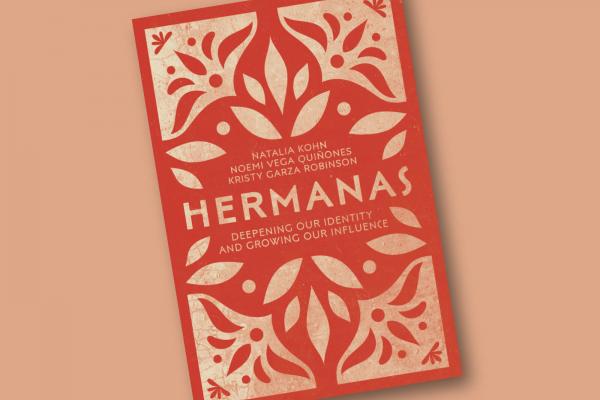IN ITS THIRD chapter, Hermanas asks: “What is your beautifully empowering narrative that may influence your hermanas [sisters] around you and those that are to come after you?” In the most wonderful way, the book’s three authors—Natalia Kohn, Noemi Vega Quiñones, and Kristy Garza Robinson—share their own stories to answer this essential question. Through the writing, they become the Latina mentors and role models many Latinas want and need, as many of us have no such examples in our communities.
What comes through these pages is how much these writers embrace their identities as Latinas, how much they love their communities, and how deeply they’ve experienced God through their identities.
They rightfully make no apology for writing this book for the many Latinas that may have had similar experiences with dominant white Christian culture. They read, interpret, and apply the Bible from the perspective of not just Latinx culture, but the specific experiences of Latinas who often find themselves doubly marginalized by racism and sexism and, thus, unheard. The authors provide examples of biblical women such as Esther, Deborah, and Hannah who embrace their ethnicity and challenges to become leaders and teachers in their spheres of influence, whether directly or indirectly.
The book is divided into two parts: “Identity and Intimacy,” inviting the Latina reader to know God more deeply through her Latina identity, and “Influence and Impact,” challenging the reader to lead and empower out of connection to the God who calls her. Each chapter invites Latina readers to pray and consider how the story they’ve just read might apply to their own. I found this to be the most powerful and effective part of the book: The authors help us Latinas see ourselves in biblical stories, providing inspiration for engagement and leadership.
I was empowered by the Spanish phrases and narratives unique to our cultures throughout the book. These aspects give the text an intimate feel, because only those with personal insider knowledge of Latinx cultures would understand all the nuances.
What both enriches this book and becomes problematic is that each of the three authors writes four chapters. This provides the book with a breadth of experiences, since all the women are proven Latina leaders in multicultural ministries, but it also makes the book a bit uneven. Some of the chapters include great theological depth and research, while others rely on dominant and traditional perspectives on the scriptures with a Latinx twist or don’t have any research support at all. Despite this, many of the book’s ideas ring true.
I highly recommend this book not just to Latinas but to all Christians. We should all be able to read the Bible from multiple perspectives, especially those from the margins. Journeying with these sisters and their reflections on the scriptures will reveal to you the beauty of embracing your identity as you follow Christ.

Got something to say about what you're reading? We value your feedback!






